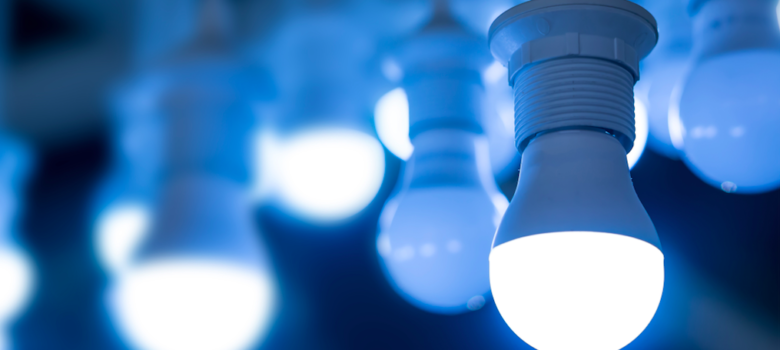
As of September 2016, traditional incandescent light bulbs are being phased out in favour of LEDs. Shops and suppliers are now no longer allowed to buy in new stock. LEDs are being pushed in Europe because of their relative efficiency and lower environmental impact.
Despite the benefits of LED lighting, some people are worried the bulbs could have negative health impacts. Clearly, exposure to light has long been believed to have effects on human health and behaviour. Scientists have proven links between light exposure and sleep patterns, mental health and eyesight. It’s worth saying at this point that we’re not convinced by the rumoured ‘dangers’ of LEDs, nor are we scientists… But here’s a roundup of the claims!
LED effects on eye health
Unlike traditional incandescent bulbs, light-emitting diodes don’t emit infrared radiation, which some believe is beneficial to our health. Incandescent bulbs give off 90% of their energy as heat, and only 10% as light. This is the very reason that LED bulbs are drastically more efficient. Instead of emitting heat from infrared radiation, almost all of the electricity used to run them is transformed into light. However, some believe that missing out on this infrared radiation means they are missing out on health benefits.

Another reported impact of LED bulbs on eyes is the colder light they give off. Warm light, commonly emitted from incandescent bulbs, is yellow-toned. Some believe the bluer light given off by LEDs is bad for eye health. This is yet to be decisively proven. Also, warm-toned LEDs are available to buy and the range is constantly being expanded.
LED effects on sleep
It is thought that LEDs may interrupt sleep patterns because white light can suppress the production of melatonin, which helps us sleep. The idea that artificial night-time lighting affects sleep is nothing new though, and there’s an easy solution – if you’re worried, dim your lights close to bedtime.
To be honest, it is hard to know how much notice to take of these supposed ‘risks’ – it is a controversial subject and more research needs to be done to prove that light bulbs can affect our health!
Think we missed something? Do you have a different opinion?
Comment below to get your voice heard…











Great post. I complete agree with the observations made in the blog. Too much exposure to traditional LED lighting is harmful because of high bio-active blue wavelength content which is present in it. Humans have a huge exposure to blue lighting which can adversely affect your health by messing with circadian cycle of the body. Think about the same, I completely renovated my house lighting last year with innovative low-blue light bulbs from SeniorLED. Besides being healthy in nature, they are pretty affordable as well as energy efficient. I’ve also noticed improvement in my sleep cycle after getting few of them at my home. I think low-blue-light tech is really great, but the sad part is not many LED manufacturers are focusing on developing healthy LED lights based on low-blue technology. Keep writing such posts!
Thanks for your comment Georgia!
Does the color temperature of an LED Lights have an effect on human health(mood & circadian rhythm?